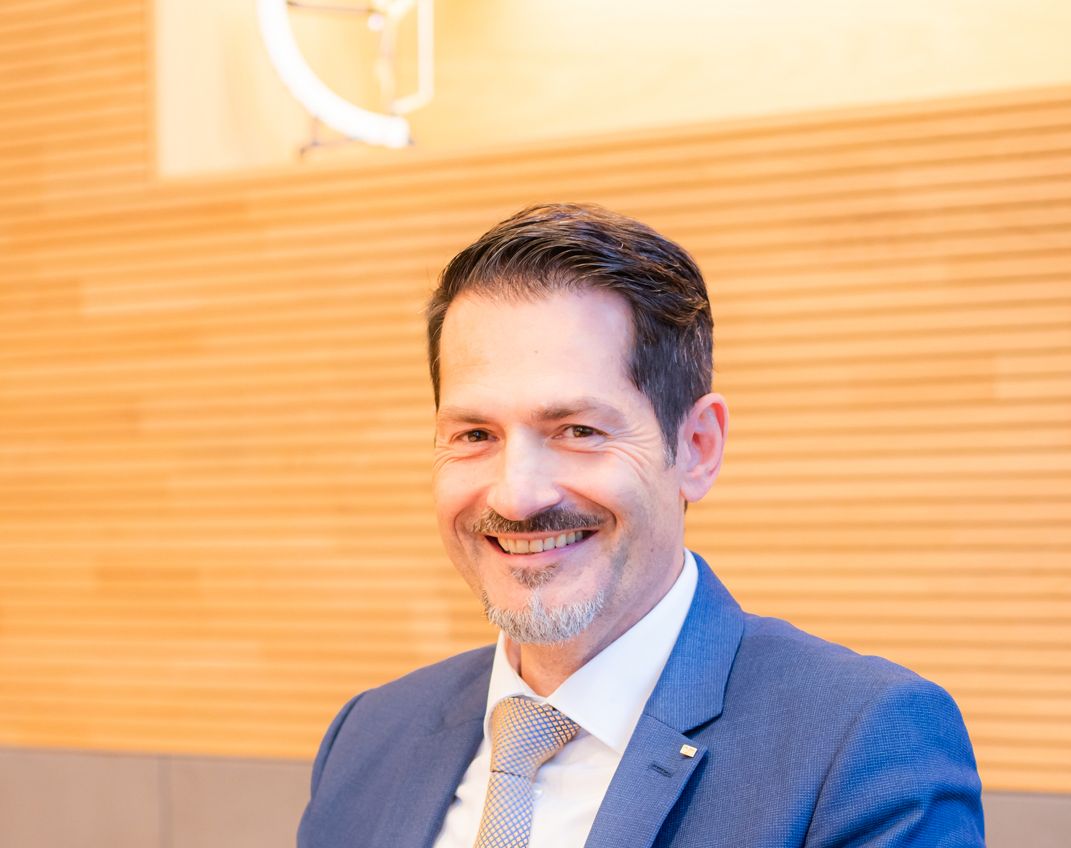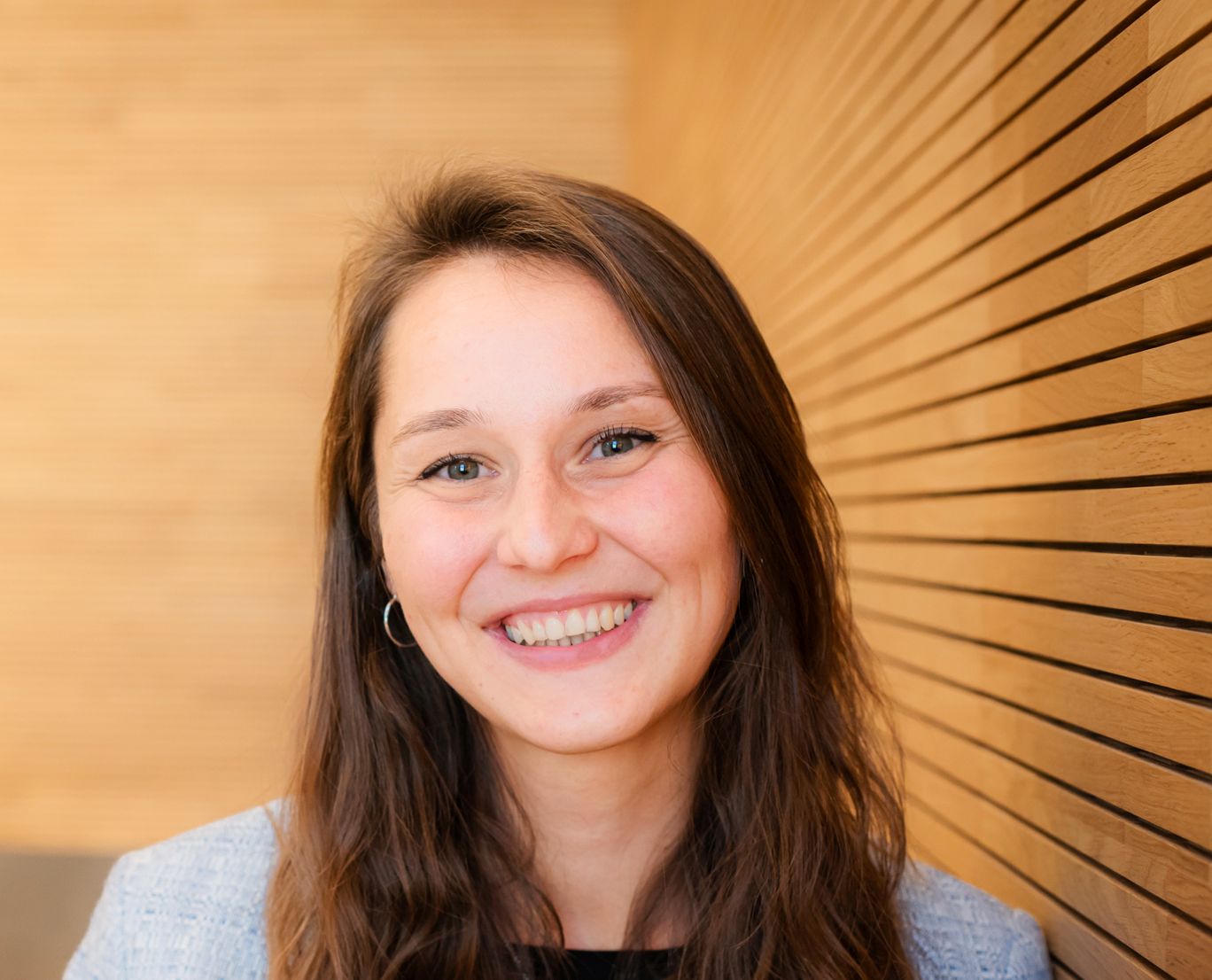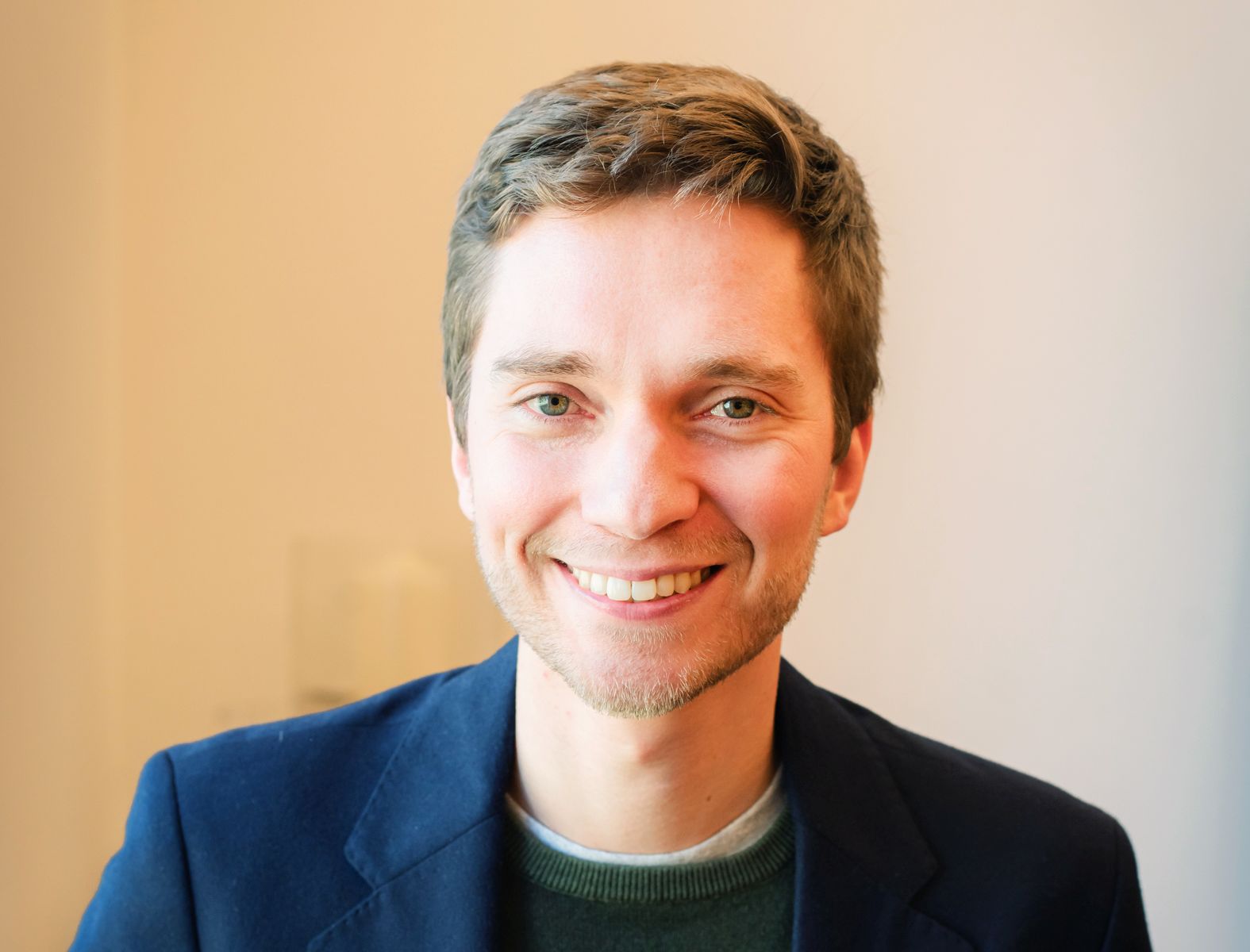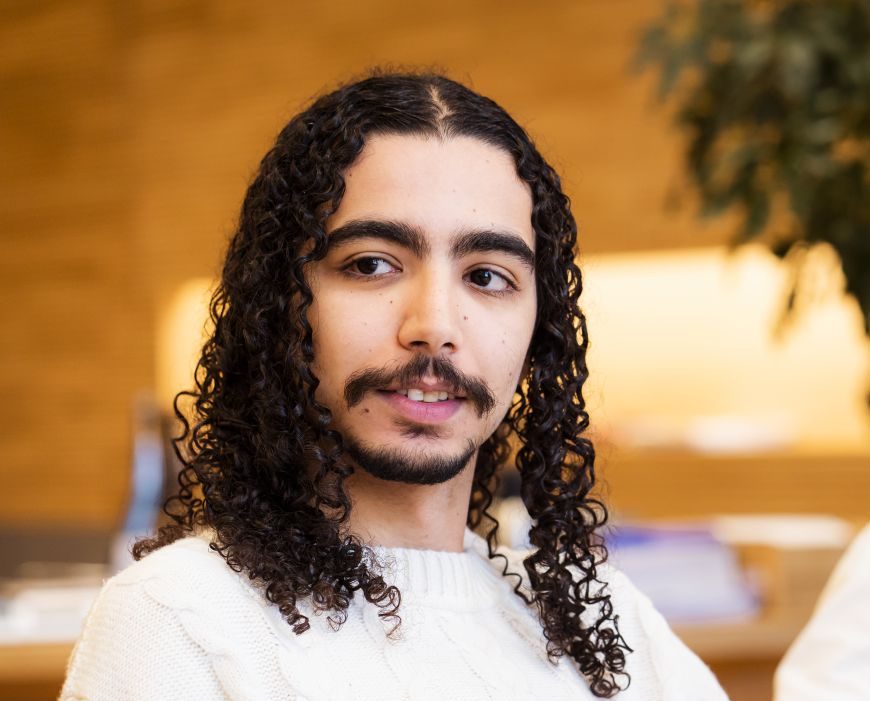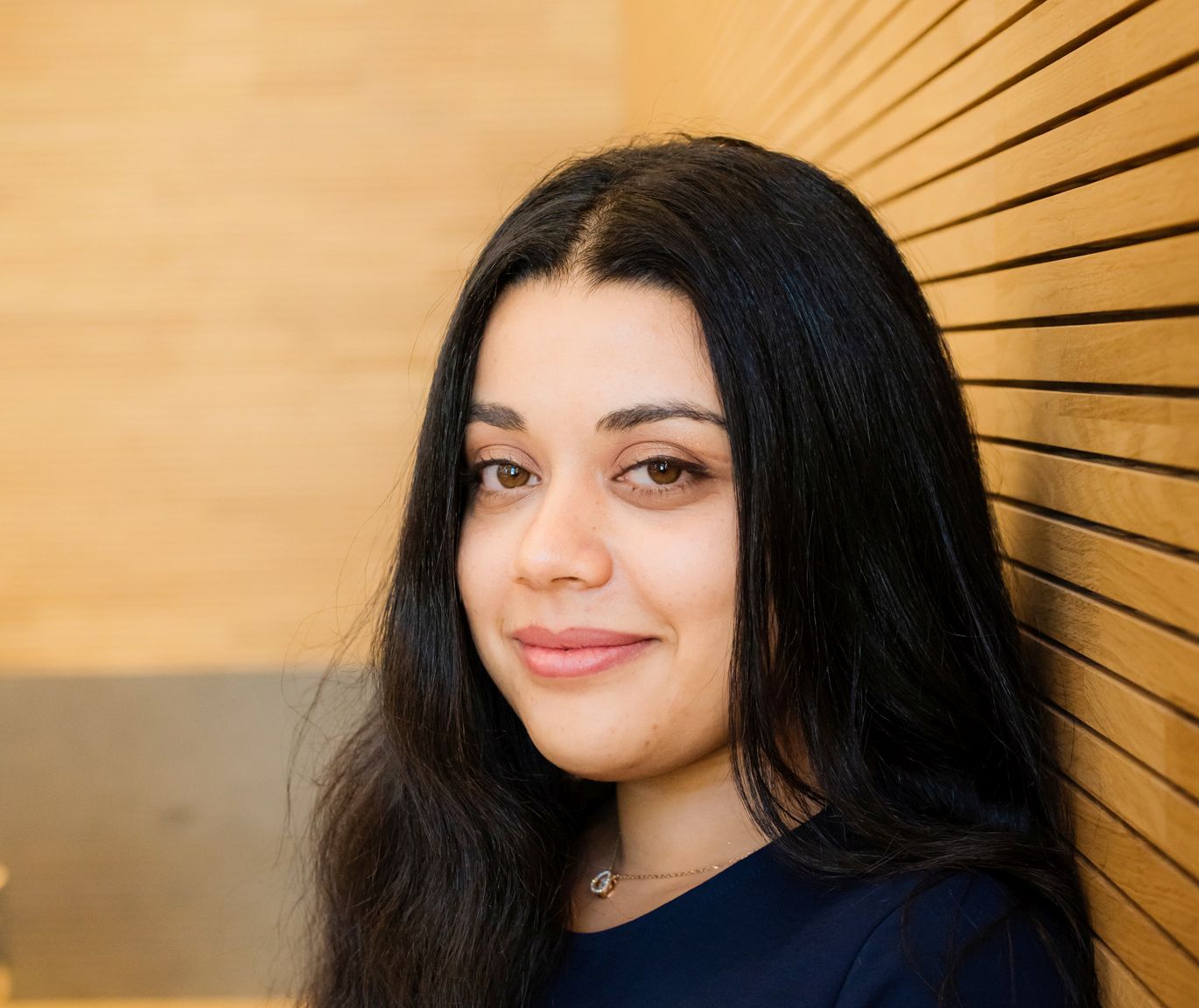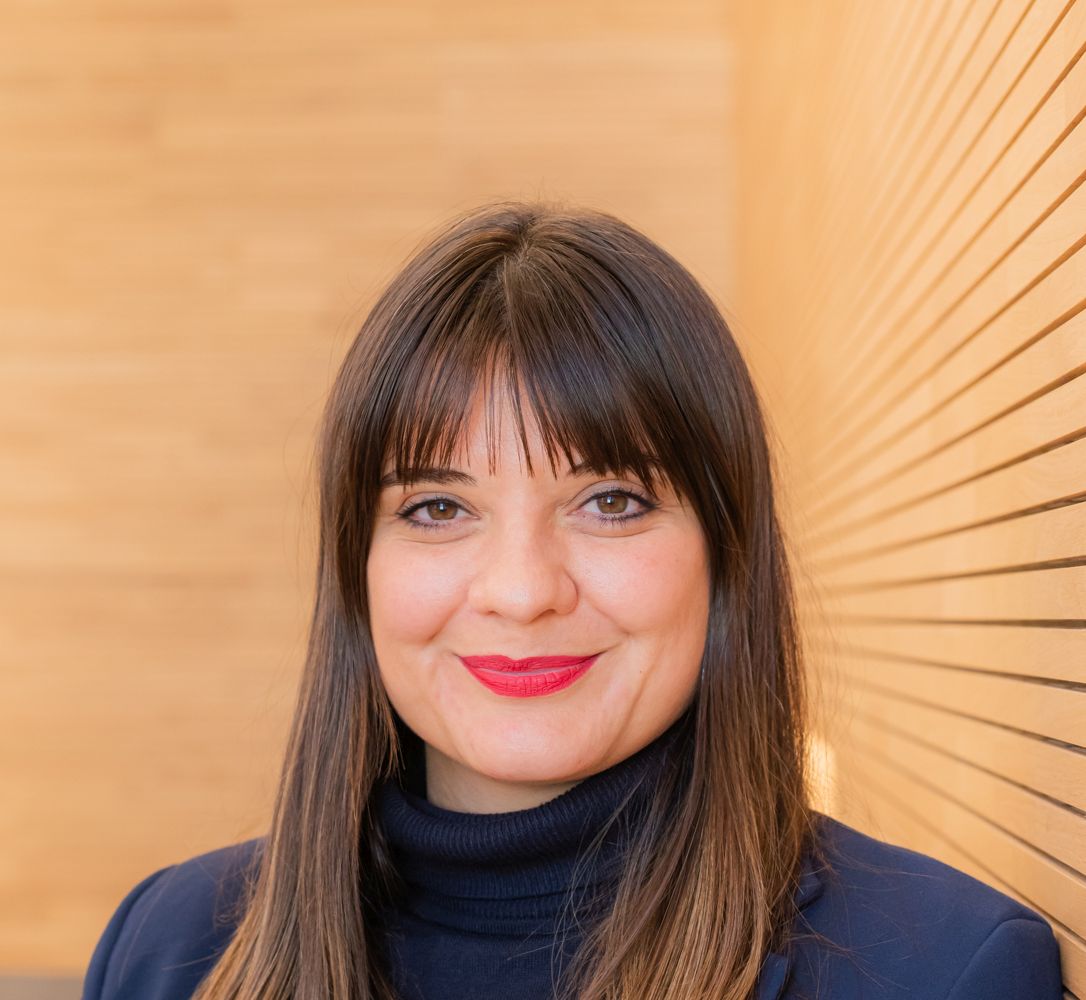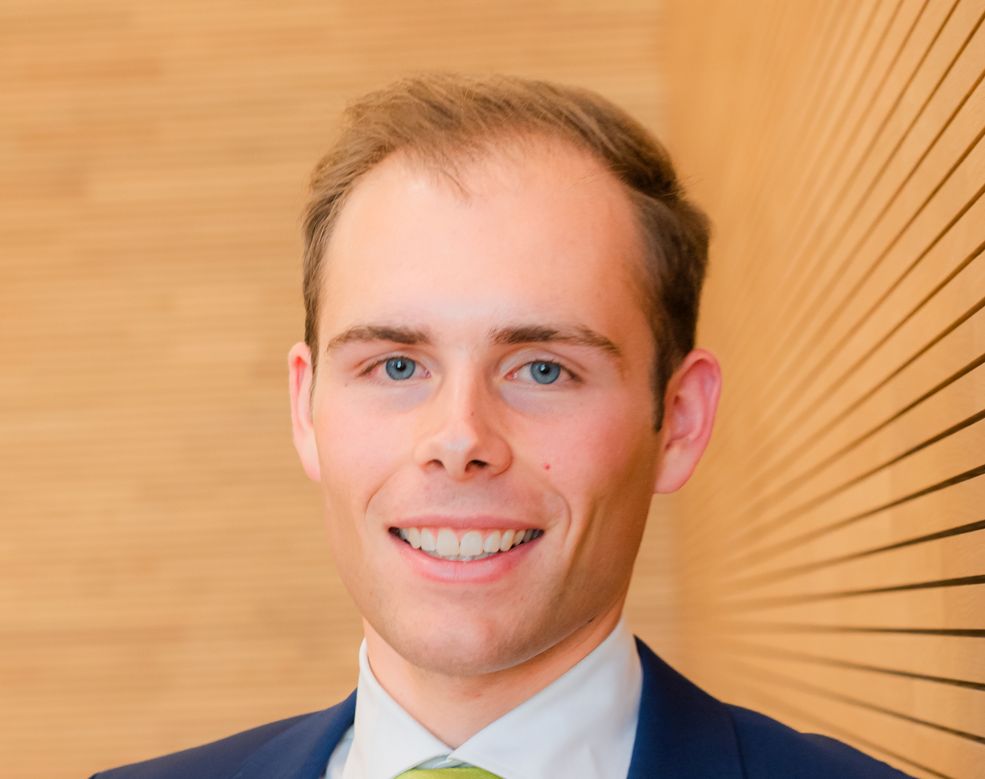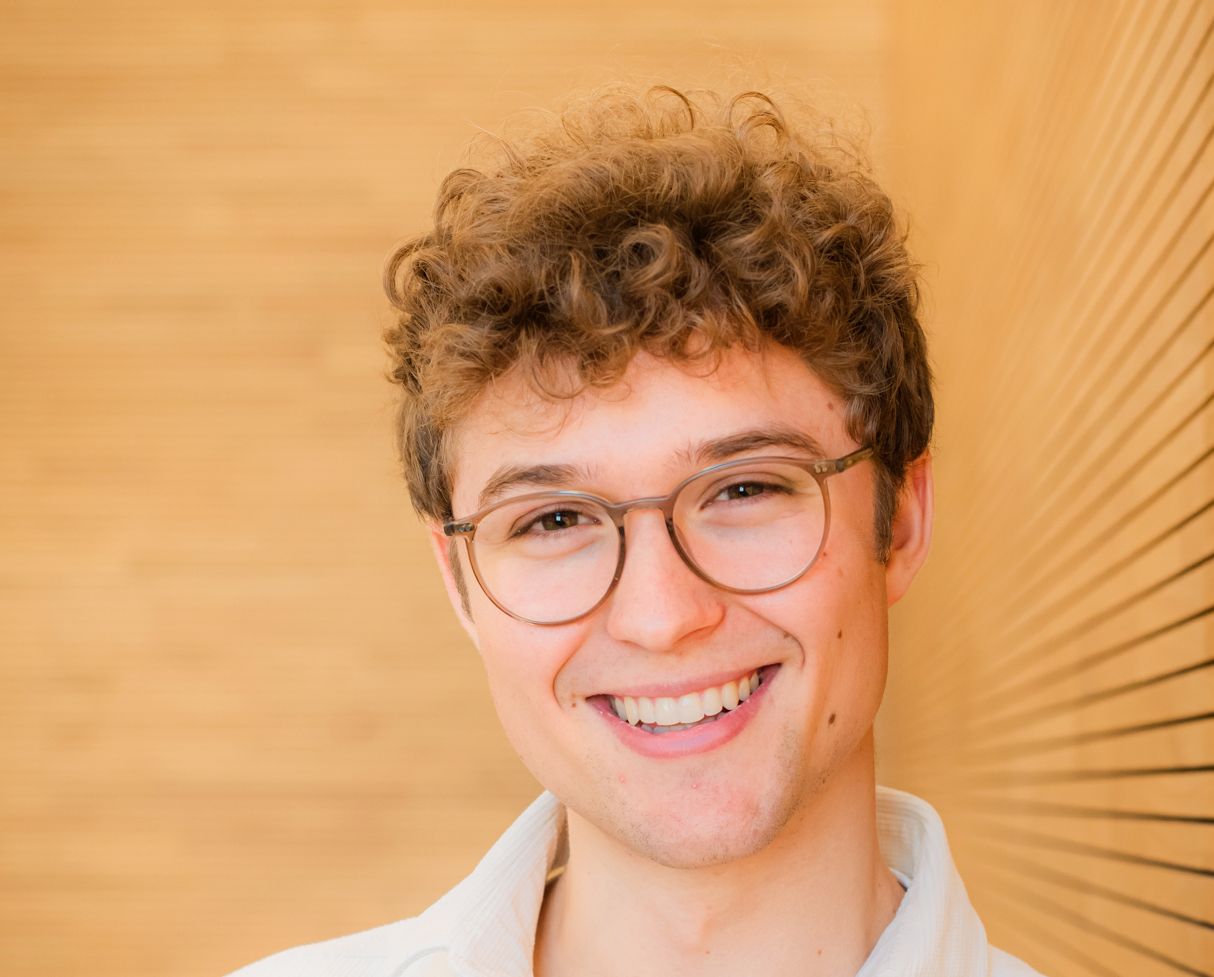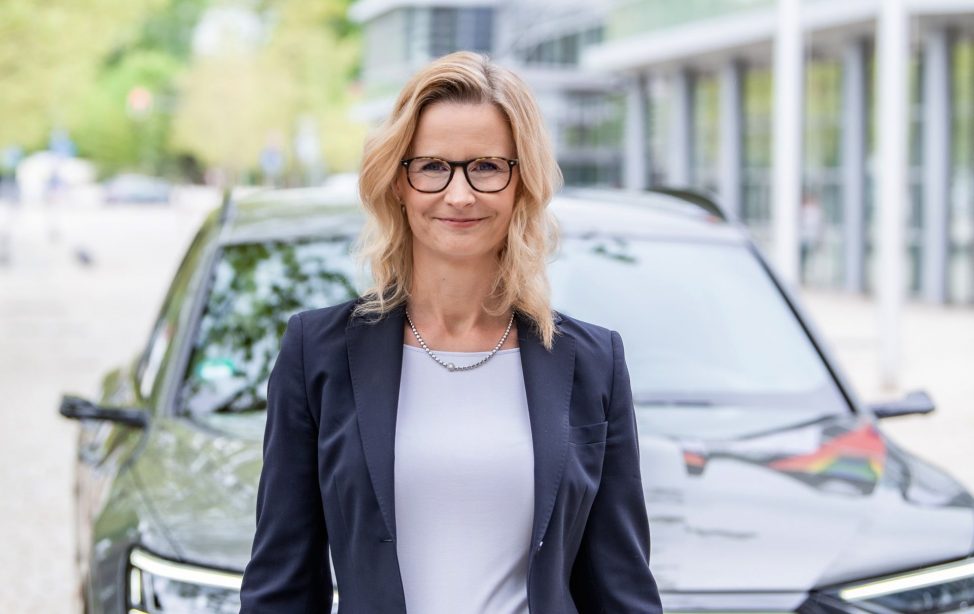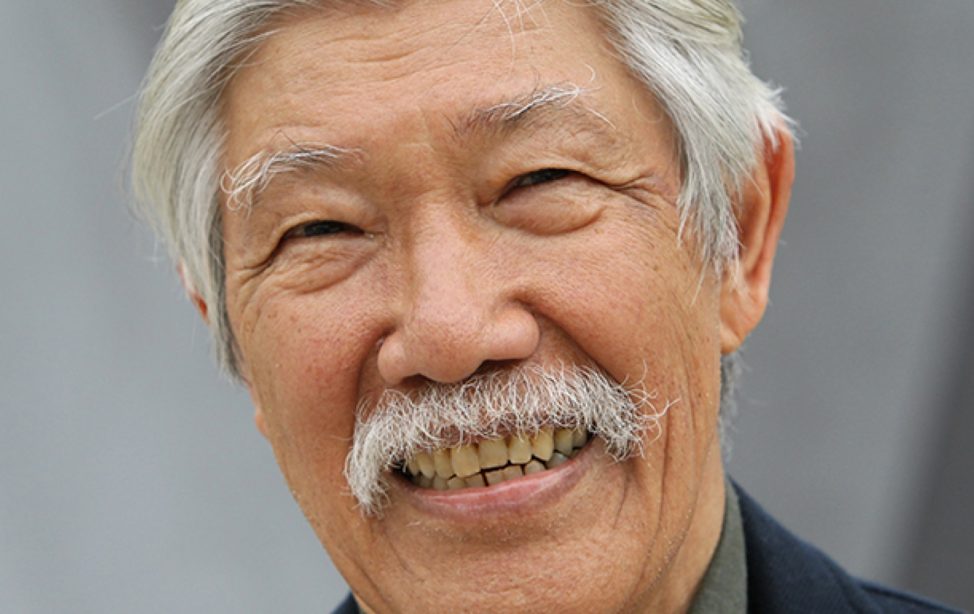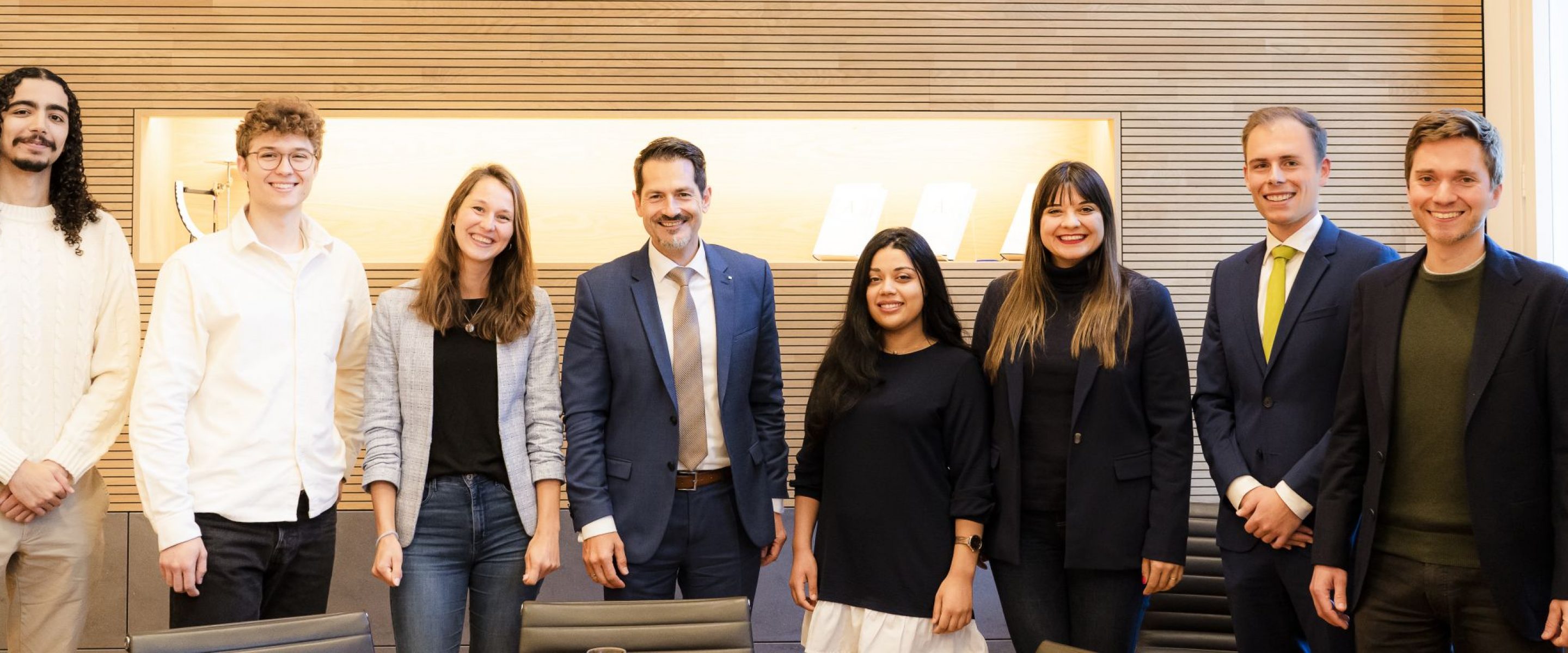
The participants of the round table discussion: Zied Jaber, Julius Wenzler, Veronica Becker, Prof. Dr. Thomas F. Hofmann, Roeya Khlifi, Dr. Tina Ruseva, Christoph Starnecker, Christoph Dietrich (Picture: Magdalena Jooss/TUM)
A Discussion on the Future of Work
How We Want to Work
… has the world of work changed so rapidly as in the last ten years. Digitali-zation has brought sectors of industry together, created new lines of work and fundamentally transformed the way we live and work. We work faster and more connected, on the road and in the office, with partners all over the world. Ex-perts are currently engaged in heated debates as to what work will look like in future. And because of the huge shortage of skilled workers in Germany, young people just starting out in their careers will have a lot to say about this.
In response to these developments, President Thomas F. Hofmann invited TUM Students and Alumni to discuss with him how TUM can prepare young people for the future working world and to shine a light on their own hopes and desires for their future jobs.
Meaningfulness, flexibility and opportunities for participation were some of the points discussed. In the end, everyone agreed that it is important for the young generation to find employment that matches their individual strengths and that fulfills and motivates them throughout their lives. TUM offers its students nu-merous opportunities to try their hand at this during their education.
Dr. Tina Ruseva TUM Alumna, mentor and entrepreneur Our topic today is how the expectations of the world of work are changing in the younger generation. What was it like for you, Professor Hofmann? Did you always want to be president?
Thomas F. Hofmann No (laughs). I followed my great passion and went down the science route. I did my PhD and habilitation at TUM’s Department of Chemistry, so I’m also an alumnus. I then worked in research and teaching at the Leibniz Association and at the University of Münster, and later returned to TUM as Professor of Food Chemistry and Molecular Sensory Science. Smell and taste research was my specialist field. Starting in 2009, I was Senior Vice President for Research and Innovation at TUM for ten years in parallel. This allowed me to partici-pate directly in the strategic development of the university. That was a great and inspiring assignment. And then I had to decide between my own research projects or applying for the presidency. It’s a job that I’ve had for the last three years now. It’s exciting every day, often unpredictable and sometimes quite nerve-racking, but when I meet people of our university, students or alumni – like today – I know who I’m doing all this for. But back to the question, becoming president of TUM was never in my future plans (laughs).
Tina Ruseva It’s really marvelous, when you are involved in a job that fulfils you so much. I always say to my mentees: It’s not just about doing something right but also doing the right thing.
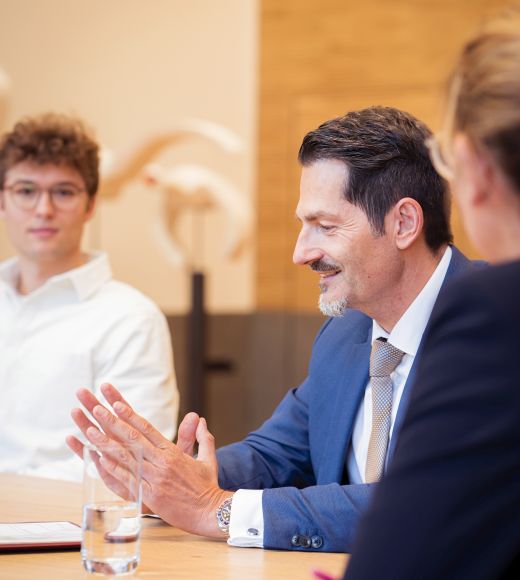
TUM Präsident Thomas F. Hofmann (Picture: Magadalena Jooss/TUM)
Enjoy Work and Learn New Things
Julius Wenzler TUM student Master Management and Technology For me, the key point is not the working environment or the working conditions, such as a great office. What’s important is the flexibility of the work itself. In today’s world, it’s utopian to think you can or want to do the same job your whole life. I would like to keep reinventing myself later on and gain insights into other things. That’s what I’m currently experiencing as a student in our project at the TUM. Junge Akademie. There is no classic distribution of tasks there. It’s not the case that business students take on the purely administrative tasks and mechanical engineers are responsible for the simulations. On the contrary: I’m currently working on the simulations because I simply enjoy it and because it’s something new. For me, interdisciplinary work means that you can always switch back and forth between the roles of a teacher and a student. Sometimes you can contribute, sometimes you have to receive and learn. I would like that to be the case in my future job, too.
Roeya Khlifi TUM student Bachelor Informatics I also regard this flexibility as the most important aspect. Right now, I’m working as a student intern and I’m supporting various research projects. That’s incredibly stimulating because all the projects involve completely different requirements and I can learn something new in each project. I find that both enjoyable and motivating.
Tina Ruseva But that’s not just true for the young generation. The times when employees were prepared to do just one job or work in one area for their whole lives are long gone. The desire for flexibility, lifelong learning and surprising, challenging tasks applies to the whole workforce – across all age groups.
Autonomy and Participation
Tina Ruseva That is all very true. But I would just like to point out that this flexibility and participation also call for a huge amount of self-discipline and motivation. Organizing yourself, planning your own time, making decisions, communicating well – those are skills you simply have to have. You have to be prepared to negotiate with your managers if you don’t agree with the aims or resources for a project. To do so, you will need good analytical skills to understand the big picture. This may come easily to some but perhaps not to all. Many people see this as a very big challenge.
Veronica Becker TUM Alumna and Project Manager at TUM That was our experience, too, with “Plant A Seed.” I set up this student initiative two and a half years ago. At the time, I wanted a flat organizational structure to make sure this would really be a collaborative project. I thought it would give everyone the chance to make a real contribution and that, like me, they would all have thousands of ideas that we could then to gether put into practice. But it became obvious pretty quickly that only a fraction of the participants really wanted this kind of responsibility. A hierarchical structure helped new students get up to speed and gave them some guidance. In decision-making, however, we always aimed for flat structures and thus were able to connect all participants with the big vision of “Plant a Seed”.
Thomas F. Hofmann There are lots of young people who say: I want a large degree of autonomy in my job because that gives me license to take action and that’s what motivates me. Because I can find self-fulfillment and put my ideas into practice. But if you want to have that amount of freedom, you also have to take responsibility for whatever you do. This is also true here at the university. We now work a lot together in cross-functional teams on complex scenarios and look for solutions using a team approach. That is still unusual for many people. Nevertheless, I believe that every company is more successful when everyone works together with a common spirit. This also requires a more agile way of working, which we need to take more into account in student training. Young people must already be able to develop independently during their studies and experience how much joy and motivation it brings to remain agile, cooperative and adaptive and to keep doing something new.
Christoph Dietrich I find an entrepreneurial mindset among our employees very valuable. That they don’t just see the product but the whole company and are willing to make decisions themselves. That they consider, for example: Is it worth buying a new measuring device because it will save me time? Or: Does it necessarily have to be this high-frequency touchpad, or can I make do with the cheaper one? In fact, anyone can take a decision like that. They just need the confidence.

Christoph Dietrich (Picture: Magdalena Jooss/TUM)
Curiosity and Soft Skills
Christoph Dietrich Yes, asking the right questions, that’s also something a university can teach. In other words, to encourage students to make suggestions for improvements, give feedback, communicate when things aren’t going well as that’s the only way things will change for the better. And not just with regard to a product but also when it comes to how we treat each other, the way we work and the way the organization is structured. That’s what we need in companies.
Julius Wenzler But you can’t learn how to ask the right questions theoretically in a lecture. You have to be thrown in the deep end in a project to see for yourself. You have to be free to explore with an open-ended outcome. At the same time, there should be nothing at stake for you, unlike at work, where you no longer have this flexibility. Students should be encouraged to get to know other disciplines, new people with whom they have to get something going.
Zied Jaber I would rather think about workshops here than lectures. We have to do more than just read books. For example, if I find out how sustainability works in concrete terms in a student initiative, I learn more than I ever could from reading a 500-page book.
Tina Ruseva But participation in initiatives like that should be voluntary. Self-determination is also important on a degree program.
Veronica Becker Yes, but voluntary also means that everybody who wants to take part, gets the chance to do so. If I have to take a job to pay for my studies or I am so busy with my studies that I don’t have time for any of these student projects, then I won’t get the chance to take part.
Thomas F. Hofmann We are actually working on that just now. The first pilots for our project weeks will be running this winter semester. The idea is that for each semester project, weeks are set aside in which teams of students from different subject areas will work on a challenge. The project weeks are arranged to make sure they are held at the same time across the entire TUM. So you can’t have a situation where the physicist you want to work with says: I can’t manage this week. And the other one is busy in the following week. It’s basically a period in the term where the entire university has its project weeks. And that makes it easier to form teams across courses.
Christoph Starnecker TUM Student Bachelor Informatics That sounds exciting. At the IKOM Career Forums we come into contact with lots of companies. As well as technical knowledge, many companies are also prioritizing cross-disciplinary qualifications such as communication skills, a well-developed sense of team spirit or an understanding of how the financials work for a technical decision. That’s becoming more and more important, this is also reflected in the requirement profiles of companies in all industries. But at the same time, not enough time is devoted to these subjects in the curriculum to enable students to learn these soft skills in practice. If the university really wants to prepare its students for working life, it should give more time to these issues.
Thomas F. Hofmann Much more time, I think. Because ultimately those are the skills that you’re going to need over and over again in a long career of maybe thirty or forty years – whatever industry, sector or company you work in. Nowadays, of course, technical demands and professional requirements are constantly changing and it is important to stay up-to-date. But in addition, the ability to explain complex issues in a three-minute-pitch, for example, is just as crucial if you want to attract partners and investors and get projects off the ground successfully. Or, as another example, the ability to include ethical considerations in your projects. This is already important today and will become even more important in the future in the development of reliable innovations. These are very exciting, dynamic times we live in. As a university, we cannot afford to stand still; we have to re-position ourselves – also in the way we teach.
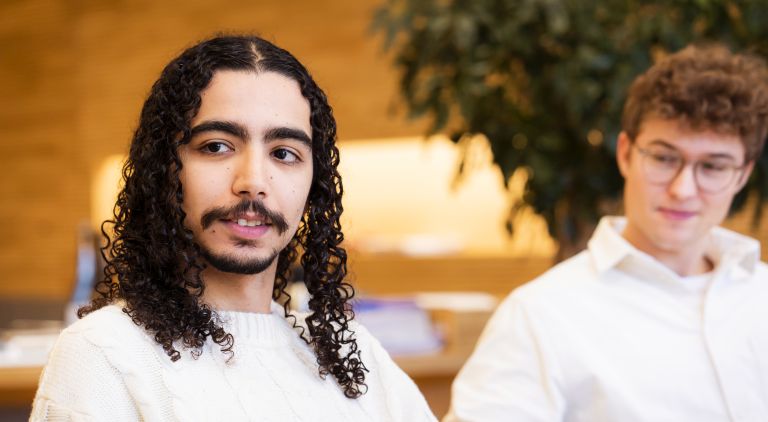
Zied Jaber (Picture: Magdalena Jooss/TUM)
Interdisciplinary and Diversity
Thomas F. Hofmann When I look at my own course of study 30 years ago, we learned hundreds of structural formulas by heart in Chemistry. Today, you can get such information digitally at any time and from anywhere. The world has changed. Today, other things matter, such as synthesizing information. We also need to learn more by doing, by working with experts of different skills and backgrounds in a team. We are at a turning point that modern universities are using wisely to reposition themselves in teaching.
Veronica Becker In the past, there were the theorists on one side and the practitioners on the other.
Thomas F. Hofmann I believe that as a university we need to find a breadth of talent and support students to develop their specific talents to the fullest. We create a bouquet of options: For those with an affinity for start-ups as well as for pure theorists or for those who want to work close to industry. For example, our “TUM Entrepreneurial Masterclass” program is very successful, even if it only involves a small group of students, but they take a lot away. I think a university with global ambitions needs depth and breadth. That’s what we want to be measured against.
Tina Ruseva Improvements only come at the interfaces between the many different disciplines. This diversity generates innovations.
Thomas F. Hofmann Exactly.
Individual Strengths and Meaningfulness
Thomas F. Hofmann You’re right. But we can help all students to develop their ability to act in such projects and to get to know their own skills and strengths. Because they’re going to need this mindset in their later careers, whether they become entrepreneurs, scientists, engineers, doctors or teachers.
Christoph Dietrich Precisely. I would like to see that in all future employees, that they have learned to think outside the box and can make decisions on their own. But also that they’re able to work together in a team and fulfil their specific roles. Ultimately, a team is only complete when everyone is fully committed whatever their role, whether they’re in controlling, administration or development.
Christoph Starnecker I see an even more far-reaching effect if employees can become more involved in the strategic considerations of companies. Companies may take greater account of issues that are important for society, such as sustainability aspects. Industry will always be about profitability – that’s simply the way our market economy is geared – but the more people can contribute their opinions, the more socially relevant issues have a chance of being taken into account, for example in product development, but also in the working environment of a company.
Veronica Becker That’s probably one of the key factors for young people today when they go looking for a job: Will this job give meaning to my life? Can I fully identify with this company’s values? I am presently involved in coordinating innovative project weeks at TUM in which students, apprentices and stakeholders from society and industry come together to draw up specific ideas for how to solve problems of society. We are currently working on a sustainability issue: “Leave no waste behind.” This has gone down incredibly well with students. Partly because they can feed in their own ideas and also because the point of the project is clear for all to see.
Thomas F. Hofmann This need to find meaning in their work seems to be key, especially for the new generation. That’s why they’re called the “Purpose Generation”. Young men and women know the values they prize. They want to find self-fulfillment in their work and work towards a goal. This attitude makes me a big fan of this generation. Many of them give their all for the things that matter to them.
Christoph Dietrich We recently asked our employees why they joined us. In addition to that they want to contribute to sustainable energy supply, many have answered that they have come because they can create a new technology with us that does not yet exist in Europe. Because they can be pioneers in that sense. That’s what motivates many of our engineers. That’s why they joined us.
Tina Ruseva When it comes to sustainability, we always think of new technologies while forgetting that we already have many solutions at hand but we simply don’t deploy them with any sense of purpose. That should be another goal of the new work environment: to develop processes for such solutions.
Thomas F. Hofmann In my opinion, the success of a company in the future will be determined by financial factors, but also by ecological and social aspects. That’s why the TUM School of Social Sciences and Technology and the Hochschule für Politik are so crucial for our university.
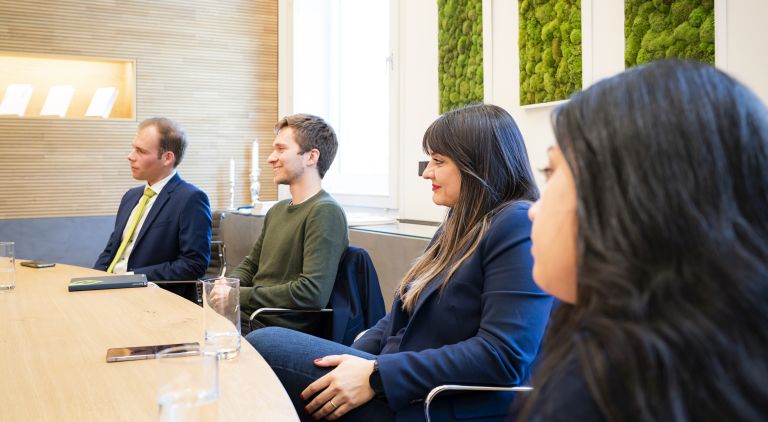
Picture: Magdalena Jooss/TUM
Network and Role Models
Thomas F. Hofmann Transformation by your own example. Most definitely. The new generation has a clear objective in mind in terms of the values it perceives as important. This has to be our jumping-off point at the university, where we get the young generation on board for the transformation process. We want to not only train them well for their careers but also that they experience the university itself as a role model and pioneer. I am convinced that in the future, students will prefer to go to universities that embrace such a culture. We have to go through our own transformation, starting with how we treat our resources – whether when designing buildings or training our staff.
Tina Ruseva Role models are key when it comes to personal guidance. That’s why I’ve been mentoring for many years. Mentoring gives you the chance to pass on a lot of informal knowledge along the way. Students receive input in the process. For example, that might mean watching someone as they work, maybe a physicist if you want to learn about physical methods. The Americans call this “sticky knowledge”, that means knowledge that sticks to people, that can’t be written down and that is best obtained in a face-to-face exchange. TUM is such a huge university with such a large community. It would be a pity if we didn’t use the knowledge of the individual member. It’s way easier to solve problems as a community.
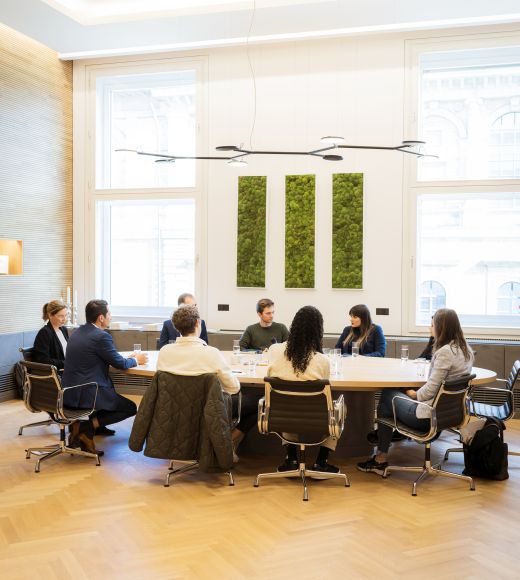
Picture: Magdalena Jooss/TUM
University as Enabler
Thomas F. Hofmann In October, we held the first TUM Sustainability Day. The idea behind it was to get as many people as possible to take part and in the end over 3,000 students, staff, professors and partners in every imaginable area got involved. We will now work together to implement the sustainability strategy and, as you say, all learn from each other in the process. I am very enthusiastic about the results so far. We have big plans in the pipeline.
Tina Ruseva Bottom up, that’s what New Work is really about for me.
Veronica Becker Some of my fellow-students didn’t really know during their studies what exactly drives them and what they want to do later. For them it was a help to work on different subjects in student initiatives or other projects at TUM.
Thomas F. Hofmann You have to find out what inspires students, what talents they possess and where they need input. That’s where we have to take the initiative – encouraging and supporting the students. I see the university as an enabler. TUM doesn’t prescribe narrow paths for its students, but we create space for opportunities, kindle enthusiasm and give these young people a lifelong network that will be with them on their very own path through life. We support our students in finding their personal goals, the meaning to their lives and their individual motivation. That is our mission and our duty as a university.

Roeya Khlifi (Picture: Magdalena Jooss/TUM)
